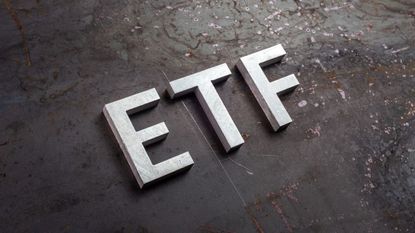The MoneyWeek ETF portfolio - Q1 2023 update
We’ve put together the MoneyWeek ETF portfolio that’s designed to give investors a simple way to navigate uncertain markets


Our MoneyWeek ETF portfolio tries to avoid staking everything on a specific idea – it aims to be positioned for a broad range of likely outcomes. As such, it's a bit different to our MoneyWeek investment trust portfolio.
I don’t believe I have any greater skill in forecasting the economy than anybody. Still, the path to this scenario feels narrow, because the world has changed greatly in the past few years.
Supply-chain security – “reshoring” and “friendshoring” – is a much bigger theme than it was.
Subscribe to MoneyWeek
Subscribe to MoneyWeek today and get your first six magazine issues absolutely FREE

Sign up to Money Morning
Don't miss the latest investment and personal finances news, market analysis, plus money-saving tips with our free twice-daily newsletter
Don't miss the latest investment and personal finances news, market analysis, plus money-saving tips with our free twice-daily newsletter
This seems intrinsically inflationary, so long as you accept that it was the shift to making so much in China that held down prices over the past couple of decades. The focus on energy security and the energy transition – after at least a decade of underinvestment in the sector – also appears inflationary.
Some argue that ageing demographics are deflationary, but that’s not clear – there are valid arguments that global ageing will be inflationary. In any case, this is much longer-term pressure and surely outweighed by other factors in the medium term.
An ETF portfolio for all scenarios
Meanwhile, for all the fears about the cost of living crisis and recession, the reality seems to be that anybody who can spend wants to do so – perhaps a combination of believing that things will get more expensive (inflation expectations) and just wanting to get on with life (the pandemic aftermath). This evidence of pent-up demand implies that recessions may be short-lived.
This is reflected in our MoneyWeek ETF portfolio selection. We have nothing in nominal government bonds, but we have a small amount in US inflation-linked bonds (US bonds will probably do better in a crisis than UK ones).
We have a gold ETF, because we think it will do well in severe inflation – and indeed it has done well for us lately (up 18% since the start of 2022). We have oil and gas – a leaf from the 1970s stagflation playbook, when energy was both a cause and a beneficiary of high inflation.
We still have some real estate. Notwithstanding fears about a credit crunch in the sector, history suggests it should do well in a scenario in which inflation consistently runs above interest rates.
It’s not clear which stockmarkets are likely to do best in this new regime, so we remain fairly evenly balanced between different categories for now in our ETF portfolio.
Cash need no longer be such a drag, thanks to higher rates on savings deposits or moneymarket funds. In short, while there’s nothing to celebrate in terms of performance – we’re flat in nominal terms over the past year – there’s no obvious reason to change right now in the ETF portfolio.
| MoneyWeek’s ETF portfolio | Row 0 - Cell 1 |
| Vanguard S&P 500 (LSE: VUSA) | 10% |
| Vanguard FTSE Dev. Europe (LSE: VEUR) | 10% |
| Vanguard FTSE 250 (LSE: VMID) | 10% |
| Vanguard FTSE Japan (LSE: VJPN) | 10% |
| iShares Core MSCI Em. Markets (LSE: EMIM) | 10% |
| iShares Dev. Market Property Yield (LSE: IWDP) | 10% |
| SSGA SPDR MSCI World Energy (LSE: ENGW) | 10% |
| iShares $ TIPS (LSE: ITPS) | 10% |
| iShares Physical Gold (LSE: SGLN) | 10% |
| Cash | 10% |
Cris Sholto Heaton is an investment analyst and writer who has been contributing to MoneyWeek since 2006 and was managing editor of the magazine between 2016 and 2018. He is especially interested in international investing, believing many investors still focus too much on their home markets and that it pays to take advantage of all the opportunities the world offers. He often writes about Asian equities, international income and global asset allocation.
Cris began his career in financial services consultancy at PwC and Lane Clark & Peacock, before an abrupt change of direction into oil, gas and energy at Petroleum Economist and Platts and subsequently into investment research and writing. In addition to his articles for MoneyWeek, he also works with a number of asset managers, consultancies and financial information providers.
He holds the Chartered Financial Analyst designation and the Investment Management Certificate, as well as degrees in finance and mathematics. He has also studied acting, film-making and photography, and strongly suspects that an awareness of what makes a compelling story is just as important for understanding markets as any amount of qualifications.
-
-
 Investment trust discounts hit 2008 levels. Here’s how to profit
Investment trust discounts hit 2008 levels. Here’s how to profitInvestment trust discounts have risen to levels not seen since 2008, here are three trusts looking to buy to profit.
By Rupert Hargreaves Published
-
 A luxury stock to buy at a high street price
A luxury stock to buy at a high street priceInvestors wrongly consider Watches of Switzerland a high-street outlet.
By Dr Matthew Partridge Published

